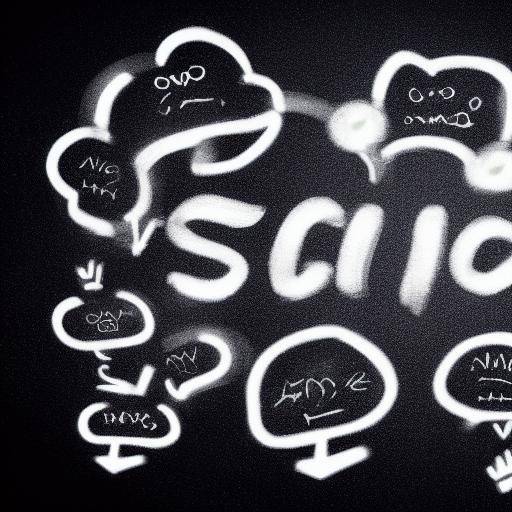
Gratitude, motivation and emotional well-being are fundamental aspects of human life that are closely interconnected. In this article, we will explore in depth the impact of gratitude on the maintenance of motivation, as well as its influence on emotional well-being. Through a thorough analysis, study cases and practical advice, we will discover the importance of gratitude and its relationship with motivation and emotional well-being.
Introduction
Gratitude is a profoundly positive emotion that implies recognizing and appreciating how good one has in life. Their impact goes beyond simply feeling well; in fact, gratitude has been associated with a number of benefits, including improving emotional well-being and motivation.
Motivation, on the other hand, refers to the impulses that lead human behavior towards achieving goals and objectives. The connection between gratitude and motivation lies in how gratitude can act as a powerful motivator, positively affecting the perspective of life and promoting greater commitment to goals.
History and background
Gratitude has been the subject of reflection and study throughout the history of humanity. From ancient philosophies to religious practices, gratitude has been regarded as a fundamental virtue for individual and collective well-being. Currently, scientific research has supported these historical perspectives by revealing the positive effects of gratitude on mental and emotional health.
The motivation, for its part, has been studied in fields such as psychology, education and performance management. Over the years, a deep understanding of the factors that drive motivation has been developed and how these can be influenced by internal and external factors, including gratitude.
In-depth analysis
Gratitude, being a feeling that encourages the appreciation of the positive in life, has an undeniable impact on emotional well-being. Many studies have shown that practicing gratitude on a regular basis can reduce stress, increase happiness and improve the quality of interpersonal relationships. These benefits contribute to greater emotional well-being, providing a solid basis for maintaining high levels of motivation.
The relationship between gratitude and motivation is explained through the concept of "emotional optimism," which refers to the tendency to maintain a positive attitude towards life and circumstances. The practice of gratitude promotes the development of emotional optimism, which in turn strengthens motivation by maintaining a positive and resilient approach to challenges.
Comprehensive review
In exploring the practical applications of gratitude in the maintenance of motivation, it is important to note that gratitude not only acts as an initial motivational impulse, but also serves as an effective damper against emotional demotivation and exhaustion. In labor, educational or personal environments, gratitude can be a powerful tool to maintain a high level of motivation and commitment over time.
Comparative analysis
By comparing gratitude, motivation and emotional well-being, there are significant interconnections between these concepts. While gratitude can be seen as a catalyst for motivation, motivation in turn nourishes and strengthens the feeling of gratitude as achievements are achieved. As for emotional well-being, gratitude and motivation work together to maintain a healthy emotional balance.
Practical advice and recommendations
Here are some practical tips to encourage gratitude, maintain motivation and promote emotional well-being:
- Take a diary of gratitude to record the daily positive experiences.
- Establish clear and realistic goals to maintain a sense of purpose and achievement.
- Cultivate positive relationships and express appreciation to others.
- Practice self-pity and forgiveness to strengthen emotional resilience.
Industry ideas and expert opinions
According to experts in positive psychology and motivation, gratitude stands out as an effective vehicle for promoting emotional well-being and maintaining sustained motivation. In business environments, leaders and managers recognize the value of fostering a working environment that promotes gratitude as a strategy to boost employee productivity and loyalty.
Case studies and practical applications
A study conducted in a working environment showed that employees who practiced gratitude daily reported greater labor satisfaction, less stress and a greater willingness to face challenges. In addition, in the educational field, teachers who fostered gratitude in their classrooms observed an improvement in the commitment of students and a more positive learning environment.
Future trends and predictions
As awareness of the importance of gratitude, motivation and emotional well-being continues to grow, more organizations, educational institutions and communities are expected to adopt practices that actively promote gratitude as a tool to strengthen emotional motivation and well-being. In addition, it is anticipated that research will continue to reveal new dimensions of interconnection between these vital elements for human life.
Conclusions
In short, gratitude plays a significant role in maintaining motivation and promoting emotional well-being. Through its positive influence on the perspective of life and the management of challenges, gratitude becomes a powerful engine for sustained motivation and healthy emotional balance.
Finally, it is important to remember that practicing gratitude, maintaining motivation and caring for emotional well-being are ongoing processes that require attention and commitment. By incorporating gratitude into our daily lives, we can strengthen our motivation and cultivate a deeper sense of emotional well-being.
Frequently asked questions about gratitude, motivation and emotional well-being
1. How can I cultivate gratitude in my daily life?
To cultivate gratitude can be achieved through simple actions such as keeping a journal of gratitude, expressing appreciation to those around us and taking awareness of daily blessings.
2. Can gratitude influence my motivation at work?
Absolutely. Practicing gratitude in the working environment can increase motivation, job satisfaction and resilience to challenges.
3. Does gratitude always lead to greater motivation?
While gratitude is a powerful motivator, it is important to recognize that there are other factors that also influence motivation, such as self-determination and clarity of objectives.
4. How to manage the lack of motivation despite practicing gratitude?
Lack of motivation despite practicing gratitude can be a sign of other underlying challenges. It is important to seek support, either through colleagues, friends or mental health professionals, to address these concerns.
5. What is the role of gratitude in emotional well-being?
Gratitude has been shown to contribute significantly to emotional well-being, promoting positive emotions, reducing stress and strengthening interpersonal relationships.
6. Is gratitude an innate emotion or can it be learned?
While the predisposition to experience gratitude can vary among individuals, gratitude can also be cultivated and strengthened through conscious and consistent practices.
With these answers, we hope to have clarified some of the common questions related to gratitude, motivation and emotional well-being.
In conclusion, gratitude plays a key role in maintaining motivation and promoting emotional well-being. By recognizing and appreciating the positive in life, we can strengthen our motivation, improve our emotional health and promote a sense of integral well-being. Practicing gratitude in a conscious and consistent way allows us to nurture these vital dimensions of our life, generating positive impacts both on a personal level and in our environment.
This concludes our comprehensive analysis of the impact of gratitude on the maintenance of motivation and emotional well-being. We hope that this article has provided a profound and practical understanding of this significant issue, inviting our readers to reflect and take action that fosters a more full and motivated life through gratitude.






















































